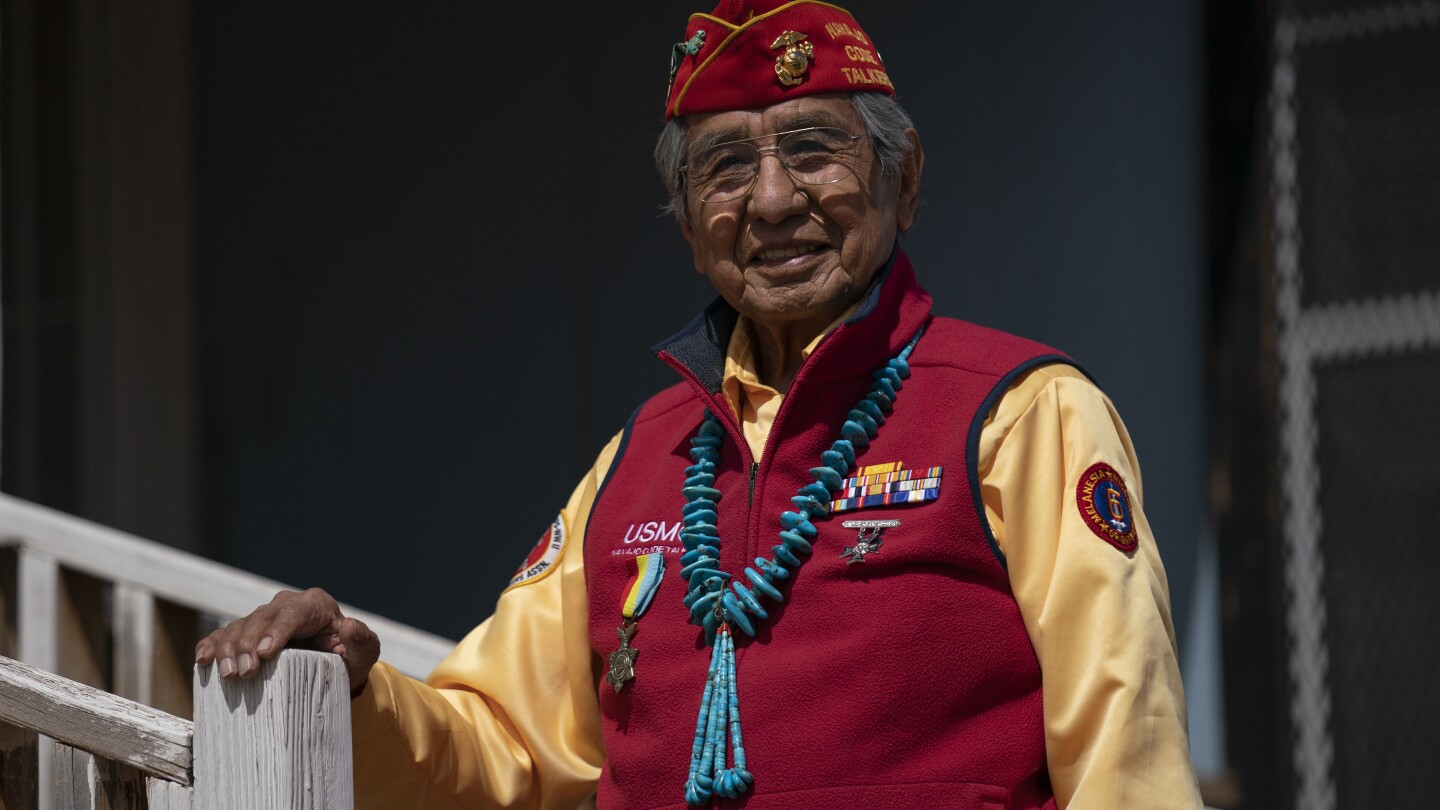Pentagon’s Bold Move: Restoring the Legacy of Navajo Code Talkers and Native Veterans
In a landmark decision, the Pentagon has initiated a vital effort to restore and honor the historical records of the Navajo Code Talkers and other Native American veterans. This bold move not only seeks to recognize the tremendous contributions these individuals made during pivotal moments in American military history but also emphasizes the critical importance of preserving Indigenous narratives that have often been overlooked. The restoration of these legacies serves as an essential reminder of the diverse tapestry that comprises the United States’ military heritage.
The Historical Significance of Navajo Code Talkers
During World War II, the Navajo Code Talkers played an instrumental role in the United States’ military success in the Pacific Theater. The U.S. Marine Corps recruited these Native Americans to develop an unbreakable code based on the Navajo language. The complexity and uniqueness of their language made it an ideal choice for secure communication on the battlefield. The code was never broken by enemy forces, providing the U.S. military with a significant advantage in critical operations.
- Critical Operations: The Navajo Code Talkers participated in numerous battles, including the Battle of Iwo Jima and the Battle of Okinawa.
- Secrecy and Complexity: Their code was based on a combination of Navajo words and military terms, ensuring that messages could be transmitted quickly and accurately.
- Recognition: Despite their crucial contributions, the Code Talkers remained largely unrecognized until decades later, highlighting the need for historical restoration.
Recent Developments from the Pentagon
Responding to growing public demand and advocacy from various organizations, the Pentagon’s recent initiative aims to catalog and restore the service records of the Navajo Code Talkers and other Native American veterans. This effort includes:
- Document Restoration: A comprehensive review and restoration of military documents that detail the service and sacrifices made by these Indigenous veterans.
- Educational Outreach: Initiatives to educate the public about the Code Talkers’ contributions and the broader role of Native Americans in the military.
- Memorialization: Plans for memorials and events to honor the legacy of these veterans, ensuring that their stories are not forgotten.
Honoring More Than Just the Code Talkers
While the spotlight often shines on the Navajo Code Talkers, it is crucial to recognize the contributions of all Native American veterans. From the Revolutionary War through to modern conflicts, Native Americans have served at a higher rate per capita than any other ethnic group in the United States. Their stories are rich and varied, contributing to the narrative of American military history in profound ways.
Key Contributions of Native American Veterans
- World War I and II: Thousands of Native Americans fought in both World Wars, often serving in segregated units.
- Vietnam War: Native American soldiers were recognized for their bravery and many received commendations, including medals of honor for their acts of valor.
- Modern Day Service: Today, Native Americans continue to serve in the military, bringing their unique perspectives and experiences to the armed forces.
The Importance of Preserving Indigenous Narratives
The Pentagon’s initiative is not merely about restoring records; it is about acknowledging the rich cultural heritage and contributions of Indigenous peoples. The narratives of Native American veterans contribute to a more complete understanding of history, one that reflects the diversity of experiences and sacrifices made in the name of freedom and service.
Furthermore, preserving these stories can have significant implications for community healing and recognition. For many Indigenous peoples, the military has been a pathway to advancement, yet it has also been a source of trauma. By recognizing and honoring the contributions of Native veterans, we can begin to address historical injustices and foster a greater sense of unity and respect among all Americans.
Community and Cultural Impact
The restoration of the legacy of the Navajo Code Talkers and Native veterans is more than a military initiative; it is a cultural movement. Communities across the United States are rallying to ensure that the stories of these veterans are told and celebrated. Schools, museums, and cultural institutions are taking steps to incorporate Indigenous narratives into their curricula and exhibits, thereby enriching the educational landscape.
- School Programs: Many educational institutions are developing programs focusing on the contributions of Native American veterans, thereby fostering a sense of pride and awareness among younger generations.
- Cultural Events: Community events and gatherings celebrate the heritage of Native veterans, providing platforms for storytelling and sharing experiences.
- Art and Media: Artists and filmmakers are increasingly focusing on Indigenous veterans’ stories, bringing them to a wider audience through documentaries, books, and other creative expressions.
The Road Ahead
The Pentagon’s commitment to restoring the legacy of the Navajo Code Talkers and Native veterans marks a significant step toward honoring the sacrifices of Indigenous peoples in the military. As we move forward, it is essential to maintain momentum in recognizing and celebrating these legacies. This involves:
- Continued Advocacy: Ongoing support from communities and organizations is vital to ensure that this initiative remains a priority.
- Policy Development: The Pentagon and other government agencies must work to create policies that promote the inclusion of Indigenous narratives in military history.
- Public Awareness: Raising awareness about the contributions of Native veterans through media campaigns and educational programming can help foster a greater understanding and appreciation.
Conclusion
The Pentagon’s bold move to restore the legacy of the Navajo Code Talkers and Native veterans is an important acknowledgment of the vital roles these individuals have played in American history. By honoring their contributions, we not only pay tribute to their bravery and service but also enrich the broader narrative of our nation’s military heritage. It is a call to action for all of us to recognize, preserve, and celebrate the diverse stories that comprise the fabric of our society. The path forward is one of recognition, respect, and a commitment to ensuring that these crucial narratives are never lost to time.
See more BBC Express News

